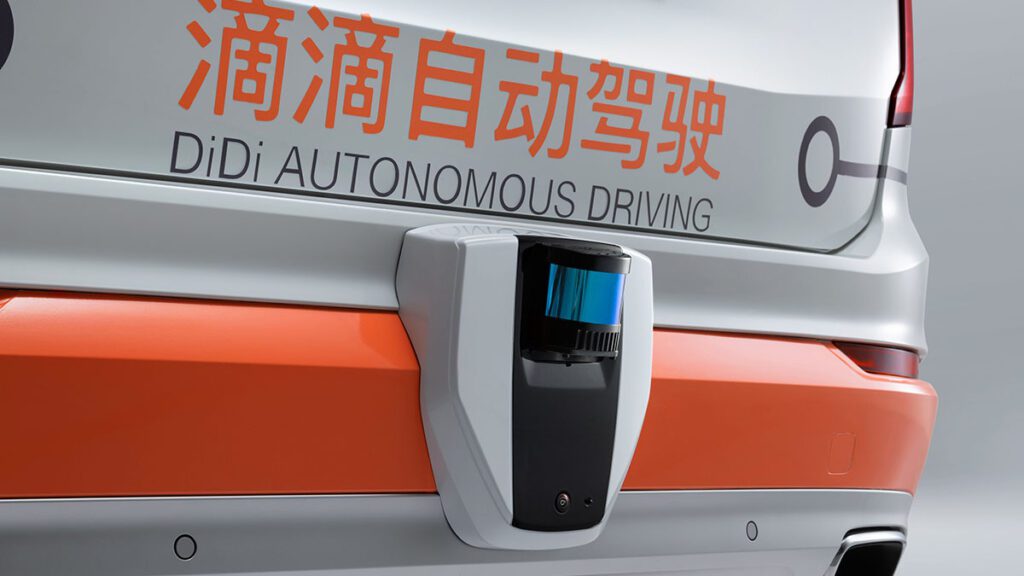 Photo courtesy of Volvo Cars
Photo courtesy of Volvo Cars Swedish automaker Volvo Cars has signed a strategic collaboration agreement with DiDi Autonomous Driving, the self-driving technology arm of popular ride hailing app DiDi Chuxing to test their self-driving cars test fleet, both companies announced on Monday.
According to a joint statement, Volvo Cars will provide DiDi with XC90 cars equipped with necessary backup systems for functions such as steering and braking and collaborate with DiDi Autonomous Driving to integrate the additional software and hardware required to make it fully ready for autonomous drive.
The XC90 cars will be the first to integrate DiDi Gemini, DiDi Autonomous Driving’s new self-driving hardware platform and are intended to be deployed for ride-hailing in DiDi’s network in the future.
The agreement reinforces Volvo Cars’ position as a provider of vehicles and the partner of choice for self-driving cars, building on its reputation as a global leader in automotive safety.

“The built-in backup systems and safety features on the XC90s, combined with DiDi Autonomous Driving’s advanced self-driving system, will eventually allow the cars to operate without safety drivers in robotaxi services,” the statement read.
Building on today’s agreement, Volvo Cars and DiDi Autonomous Driving look to build a long-term partnership as DiDi continues to expand its autonomous test fleets across China and the U.S. and scales up its commercial robotaxi operations.
According to DiDi, it uses uses its expertise in network operation and large bank of real-world driving data to develop commercial autonomous transportation services by collaborating with the world’s premium car makers.
“In expanding partnerships with global automotive industry leaders, we believe shared, electric and autonomous vehicle networks will be crucial for future urban transport systems to achieve the highest safety and sustainability standards,” said Bob Zhang, CEO of DiDi Autonomous Driving and CTO of Didi Chuxing.
“DiDi Gemini, our new self-driving hardware platform incorporates critical hardware improvements from our test passenger service operations in Shanghai. With Volvo Cars’ leadership in safety, we look forward to achieving new milestones towards future autonomous transport services.”

Volvo Cars’ partner-of-choice ambition comes as ride-hailing firms around the globe seek to expand their fleets with fully autonomous cars in a safe and responsible way.
Earlier last year 2020, Volvo Cars provided DiDi with Volvo XC60s for use in Shanghai’s first pilot robotaxi program. People in certain areas of Shanghai could book trips by robotaxi in the DiDi app and be driven autonomously, while the cars were monitored by a safety driver and engineer.
“This strategic collaboration with DiDi Autonomous Driving is further validation of our ambition to be the partner of choice to the world’s leading ride-hailing companies,” said Håkan Samuelsson, Volvo Cars’ chief executive. “Combining DiDi’s expanding robotaxi program with our safe cars creates a great match to build trust among consumers for autonomous ride-hailing.”
It is worth mentioning that the agreement comes just a week after several tech companies unveiled plans to enter the autonomous driving and EV markets. In a sort of domino effect, Chinese tech titan Huawei told reporters earlier last week that they are looking to invest one billion dollars into both markets.
The telecom vendor also announced that its first EV would be available as of April 17.
“The smart car business unit receives one of the heaviest investments from Huawei. We will invest more than $1 billion in car component development this year,” rotating chairman Eric Xu said while speaking to industry analysts in Shenzhen earlier last week.
“China adds 30 million cars each year and the number is growing. Even if we don’t tap the market outside of China, if we can earn an average 10,000 yuan from each car sold in China, that’s already a very big business for Huawei.”
On the same day, local media reported that DiDi was also launching an EV unit; a week earlier, budget smartphone maker Xiaomi announced that it will invest 10$ billion to develop EVs over the span of the decade, with a new subsidiary to handle the venture.